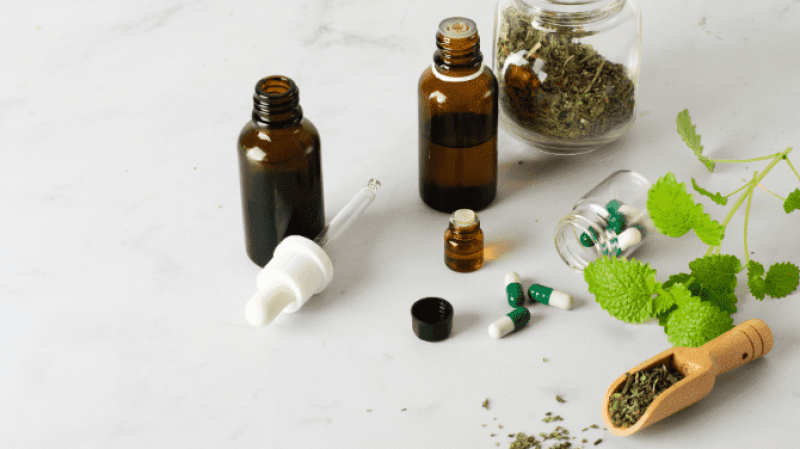Health
Ayurvedic Medicine for Diabetes and Blood Pressure: A Natural Path to Health and Balance

Maintaining optimal health in today’s fast-paced lifestyle requires more than just temporary fixes, it calls for holistic, sustainable solutions. Ayurveda, India’s ancient system of medicine, offers time-tested remedies for chronic conditions like diabetes and high blood pressure. Both ailments are increasingly common due to poor diet, stress, and sedentary habits. Through natural herbs, dietary practices, and balanced living, Ayurvedic medicine for diabetes and Ayurvedic medicine for blood pressure help restore the body’s equilibrium and promote long-term wellness.
Understanding the Ayurvedic Approach
Ayurveda believes that diseases arise when there is an imbalance in the body’s three doshas, Vata, Pitta, and Kapha. In conditions like diabetes (Madhumeha) and hypertension (Raktagata Vata), improper digestion, toxin accumulation, and disturbed energy flow are the main culprits. Instead of merely suppressing symptoms, Ayurveda focuses on detoxifying the body, correcting metabolism, and rejuvenating internal systems.
The goal is not just to lower sugar or pressure levels but to achieve harmony within the body through natural means, herbs, diet, yoga, and meditation. This holistic perspective makes Ayurvedic remedies highly effective and safe for long-term use.
Ayurvedic Medicine for Diabetes: Natural Blood Sugar Management
Ayurvedic texts describe diabetes as a result of an imbalance in Kapha and Pitta doshas, leading to excessive sweetness in the body. Several potent herbs are used in Ayurvedic medicine for diabetes to support pancreatic health and regulate glucose levels naturally.
1. Bitter Gourd (Karela): Known for its hypoglycemic properties, bitter gourd helps reduce sugar absorption in the intestine and improves insulin sensitivity.
2. Fenugreek (Methi): Its soluble fiber content slows down sugar absorption and enhances glucose tolerance.
3. Gudmar (Gymnema Sylvestre): Often called the “sugar destroyer,” this herb helps suppress sugar cravings and improves insulin function.
4. Amla (Indian Gooseberry): A powerhouse of Vitamin C, Amla detoxifies the body and promotes liver health, which indirectly aids in glucose regulation.
5. Turmeric (Haldi): Curcumin in turmeric has anti-inflammatory and antioxidant effects that help control sugar levels and prevent diabetic complications.
Ayurveda also recommends following a Kapha-pacifying diet, including more bitter, astringent, and pungent foods, and engaging in regular yoga to maintain balance.
Ayurvedic Medicine for Blood Pressure: Restoring Calm and Circulation
High blood pressure (Rakta Chapa or Raktagata Vata) is often linked with stress, poor diet, and irregular lifestyle habits. Ayurvedic medicine for blood pressure emphasizes calming the nervous system, improving blood circulation, and strengthening the heart naturally.
1. Arjuna (Terminalia Arjuna): A revered cardiac tonic, Arjuna strengthens heart muscles and maintains optimal cholesterol and blood pressure levels.
2. Ashwagandha: This adaptogenic herb reduces stress and anxiety, major contributors to hypertension, and helps the body adapt to emotional and physical stressors.
3. Sarpagandha (Rauwolfia Serpentina): Known for its natural hypotensive effects, this herb is used to regulate high blood pressure effectively.
4. Jatamansi and Brahmi: These calming herbs improve sleep, reduce anxiety, and support mental peace, helping in the management of hypertension naturally.
Along with herbal remedies, Ayurveda encourages a sattvic diet, rich in fresh fruits, vegetables, and whole grains, and relaxation techniques like meditation and pranayama to control stress levels.
Lifestyle and Dietary Tips for Better Results
For effective results from Ayurvedic remedies, daily lifestyle adjustments play a crucial role. Ayurveda suggests:
- Eating mindfully: Avoid overeating and include more whole, natural foods.
- Staying hydrated: Drink lukewarm water throughout the day to aid digestion and detoxification.
- Regular physical activity: Gentle yoga poses like Trikonasana and Shavasana enhance blood circulation and metabolism.
- Stress management: Meditation, deep breathing, and sound sleep are vital for maintaining balance in both blood sugar and pressure.
These practices not only complement Ayurvedic medicines but also prevent further complications.
The Ayurvedic Path: Healing from Within
Unlike modern medicine that often relies on quick symptom relief, Ayurveda heals from within. By combining herbs, diet, and mindful living, one can experience lasting results. Ayurvedic medicine for blood pressure and diabetes not only normalize readings but also rejuvenate the entire system, leading to improved energy, focus, and emotional stability. Ayurveda’s emphasis on prevention and balance makes it a reliable ally for long-term health management.
Conclusion
Ayurveda offers a gentle yet powerful approach to managing chronic conditions like diabetes and hypertension. With consistent use of authentic herbal formulations and mindful living, you can experience the transformative benefits of natural healing. Whether you are looking to stabilize your blood sugar or manage your blood pressure, Ayurvedic medicine provides a safe, holistic, and sustainable path toward total well-being.
Frequently Asked Questions
1. How long does it take for Ayurvedic medicine to show results for diabetes and blood pressure?
Results vary from person to person. Generally, noticeable improvement may occur within 4–6 weeks of consistent use, combined with a healthy diet and lifestyle changes.
2. Can Ayurvedic medicine for diabetes and blood pressure be taken along with allopathic medicines?
Yes, but it’s best to consult an Ayurvedic practitioner or healthcare provider before combining treatments to avoid interactions and ensure proper dosage.
3. Are there any side effects of Ayurvedic medicines?
When taken as per recommended dosage and under expert guidance, Ayurvedic medicines are generally safe and free from major side effects. Always choose pure, authentic herbal products for best results.
Source:
Click for the: Full Story
You might like













 Close Menu
Close Menu